Second Workshop at the Faculty of Central European Studies within the Recovery Plan Project
On October 7, 2025, the second workshop took place at the Faculty of Central European Studies of Constantine the Philosopher University in Nitra as part of the project Preparation of Future Teachers of Slovak Language and Slovak Literature for Educational Practice in Schools with Hungarian as the Language of Instruction. The project has been implemented in cooperation with the Ministry of Education, Research, Development and Youth of the Slovak Republic and supported by the Recovery Plan as a joint initiative of the Faculty of Central European Studies and the Faculty of Arts of Constantine the Philosopher University in Nitra.
The participants of the workshop were welcomed by Ladislav Szekeres, Dean of the Faculty of Central European Studies at CPU in Nitra. Among the invited guests were representatives of the Department of Education — Kálmán Petőcz, Director General of the Department of National Minority and Inclusive Education, and Dóra Kanyicska Belán, Director of the Department for the Development of Minority Education — as well as members of the media and other institutions. The event was moderated by the project’s principal investigator, Ildikó Vančo.
The first two presentations featured contributions from the project team members of the Faculty of Central European Studies at CPU in Nitra. Anna Oros Bugár presented the results of research conducted at primary schools with Hungarian as the language of instruction, carried out during the earlier stages of the project. Ján Gallik and Michal Krauter introduced a new course on strategies for teaching Slovak language and Slovak literature in schools with Hungarian as the language of instruction, as well as an updated course on communication skills. These courses are being piloted in the current academic year in cooperation with the Institute for Teacher Education of the Faculty of Central European Studies at CPU in Nitra.
Patrik Petráš, a representative of the project team from the Faculty of Arts at CPU in Nitra, presented the results of research conducted at lower secondary schools with Hungarian as the language of instruction.
Katalin Hernády Sýkora, Klaudia Paulíková, and Patrik Šenkár from János Selye University in Komárno presented the project Slovak as a Second Language in the Undergraduate Training of Teachers, which is being implemented at their university under the same Recovery Plan call.
Máté Huber from the University of Szeged shared his experiences in preparing future foreign language teachers. He emphasized the need to use innovative methods and digital technologies in teaching, while also pointing out the importance of traditional methods, which can be equally effective when applied correctly.
The next part of the program featured presentations by the authors of Slovak textbook series designed for pupils with Hungarian as their mother tongue. Rózsa Skabela introduced the Živé obrázky series, and Adrienn Bakos presented the Po slovensky hravo series. These textbooks offer interactive and engaging teaching materials that emphasize a communicative approach and the application of foreign language teaching methods in the acquisition of Slovak.
In the last presentation, Orsolya Végh spoke via video, presenting her experience from the Rozumieme.si project, which aims to overcome barriers, get to know each other and make friends between children of Hungarian and Slovak nationality.
The roundtable discussion, which formed the final part of the official program, provided space for questions related to the presented results, as well as suggestions and inspiration from workshop participants — both members of the project team and invited experts and guests. Perhaps the greatest encouragement for the project team came from the address by Kálmán Petőcz and Dóra Kanyicska Belán, who, as representatives of the Department of Education, expressed their satisfaction with the results achieved so far and offered support for the next stage of the project — a phase that will require considerable personal and time investment from the team members.
In conclusion, it can be stated that the workshop contributed to the necessary exchange and summarization of information between the project teams of both faculties, to the evaluation of the current stage of the project, and to the definition of tasks for its next phase.
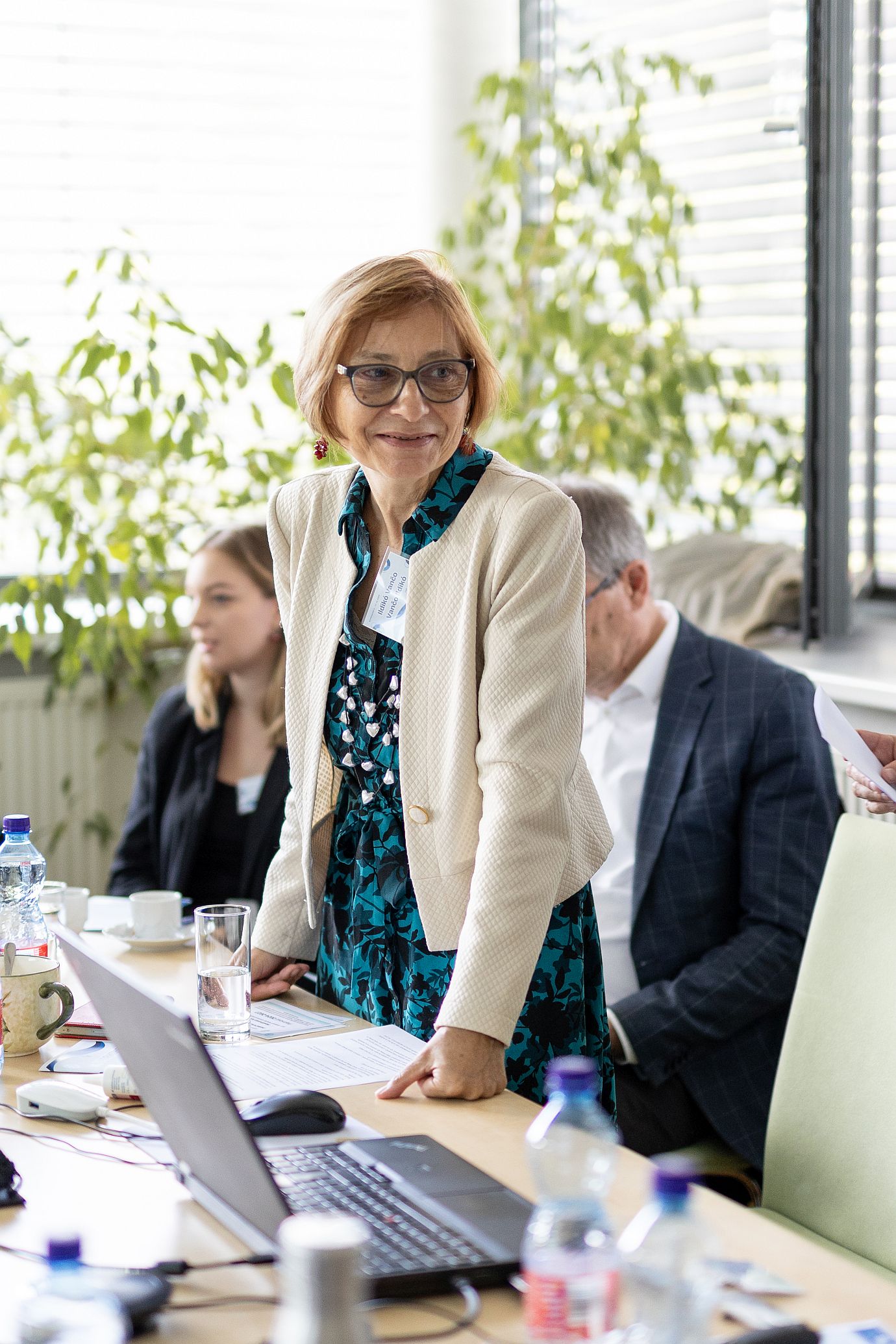
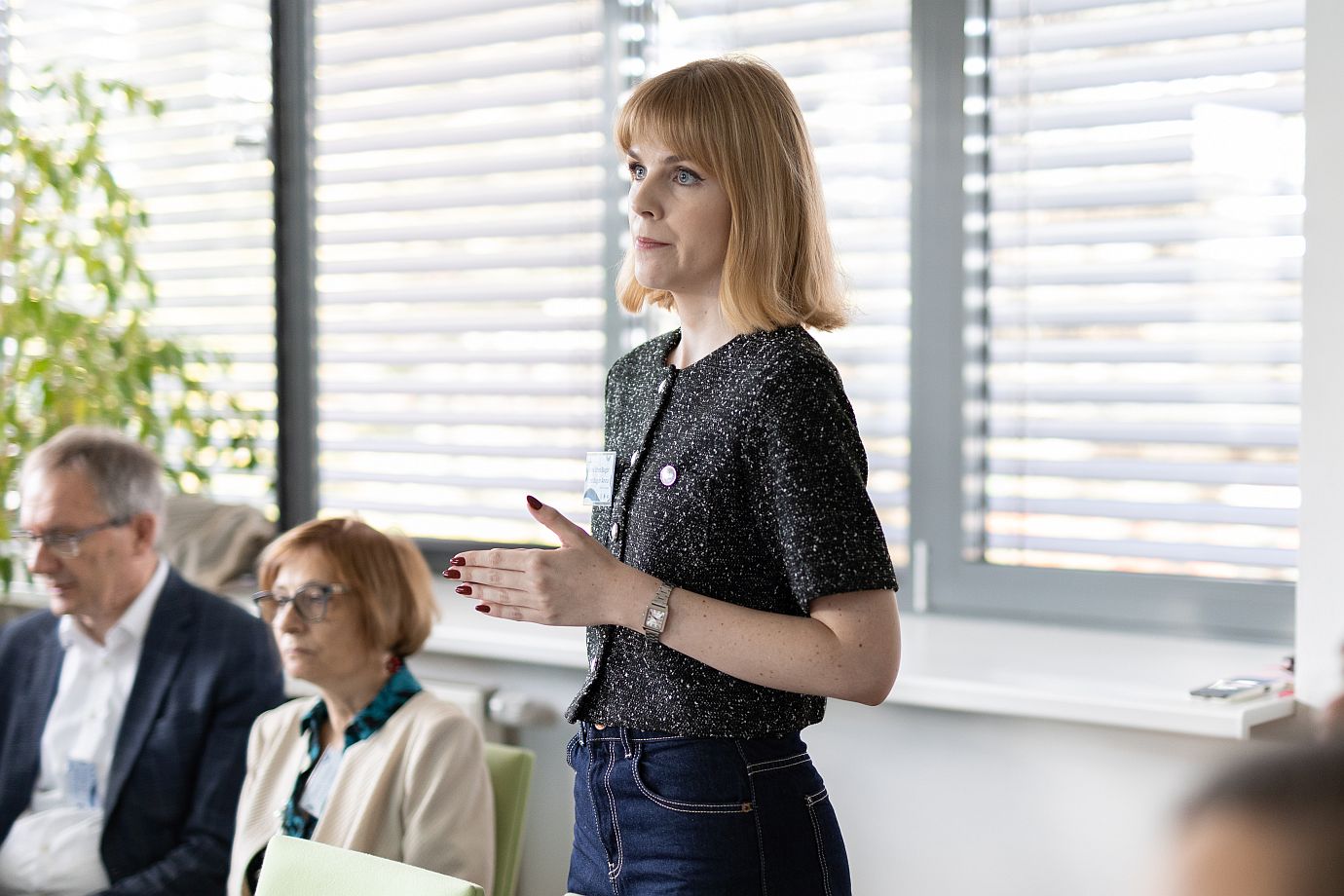
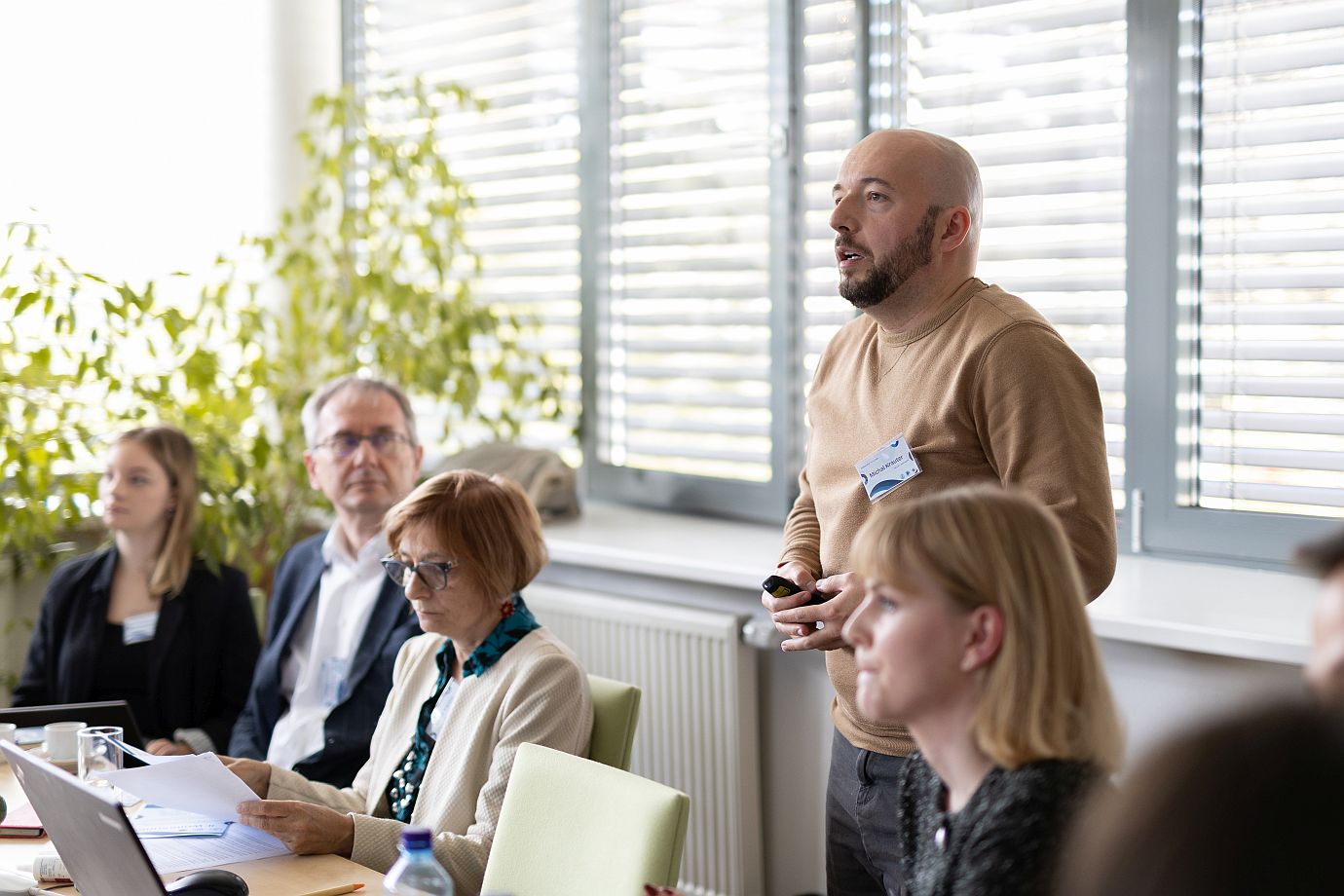
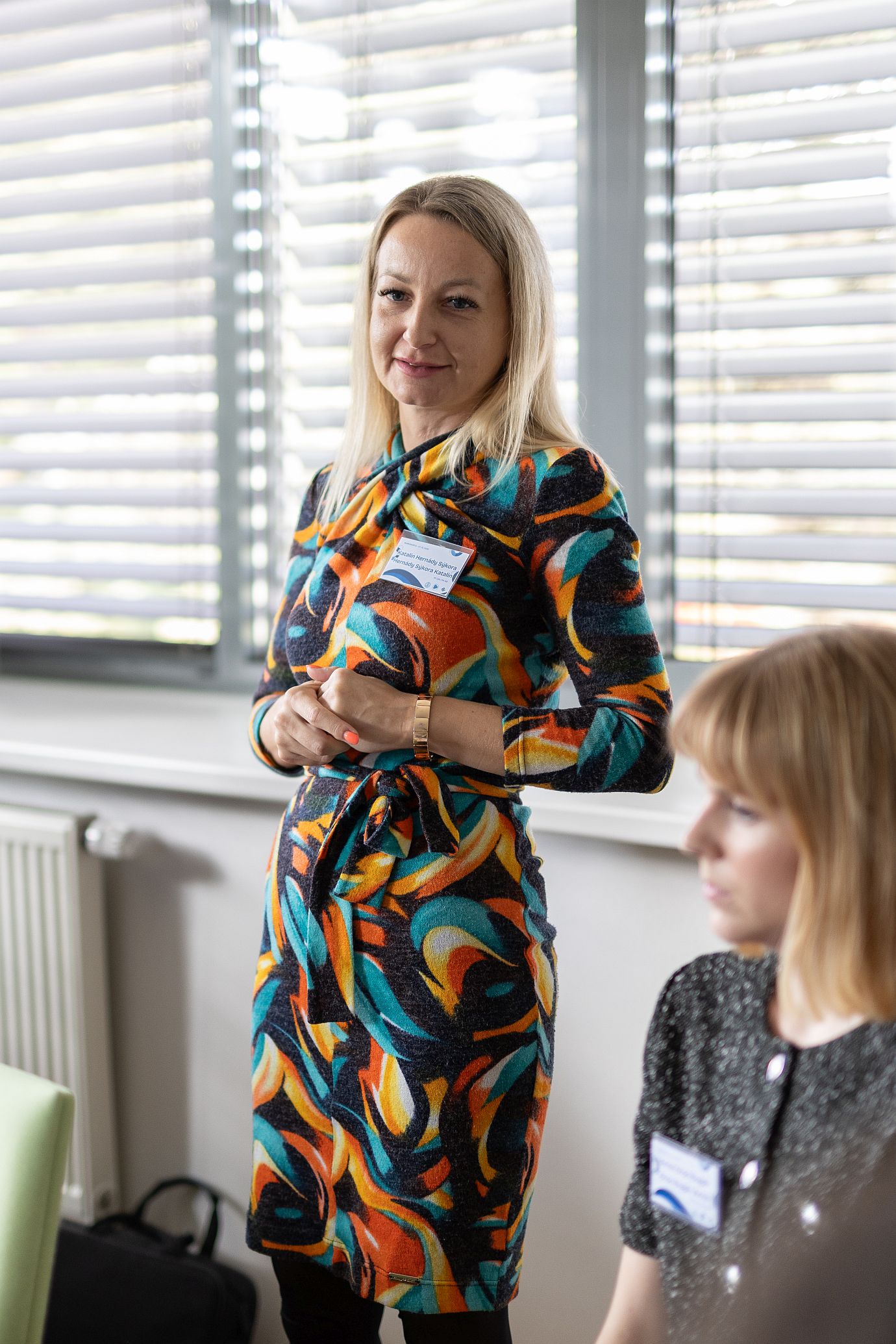
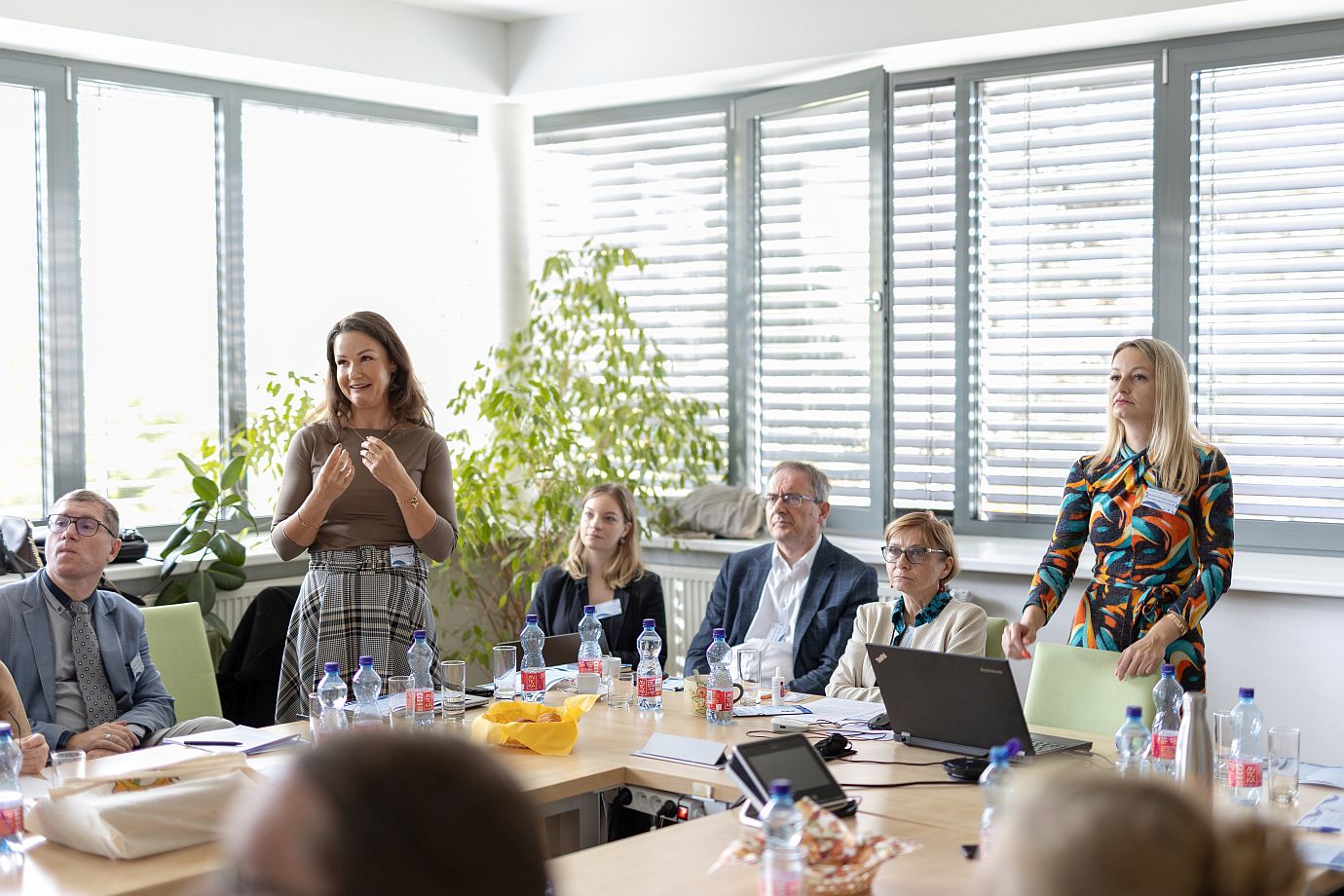
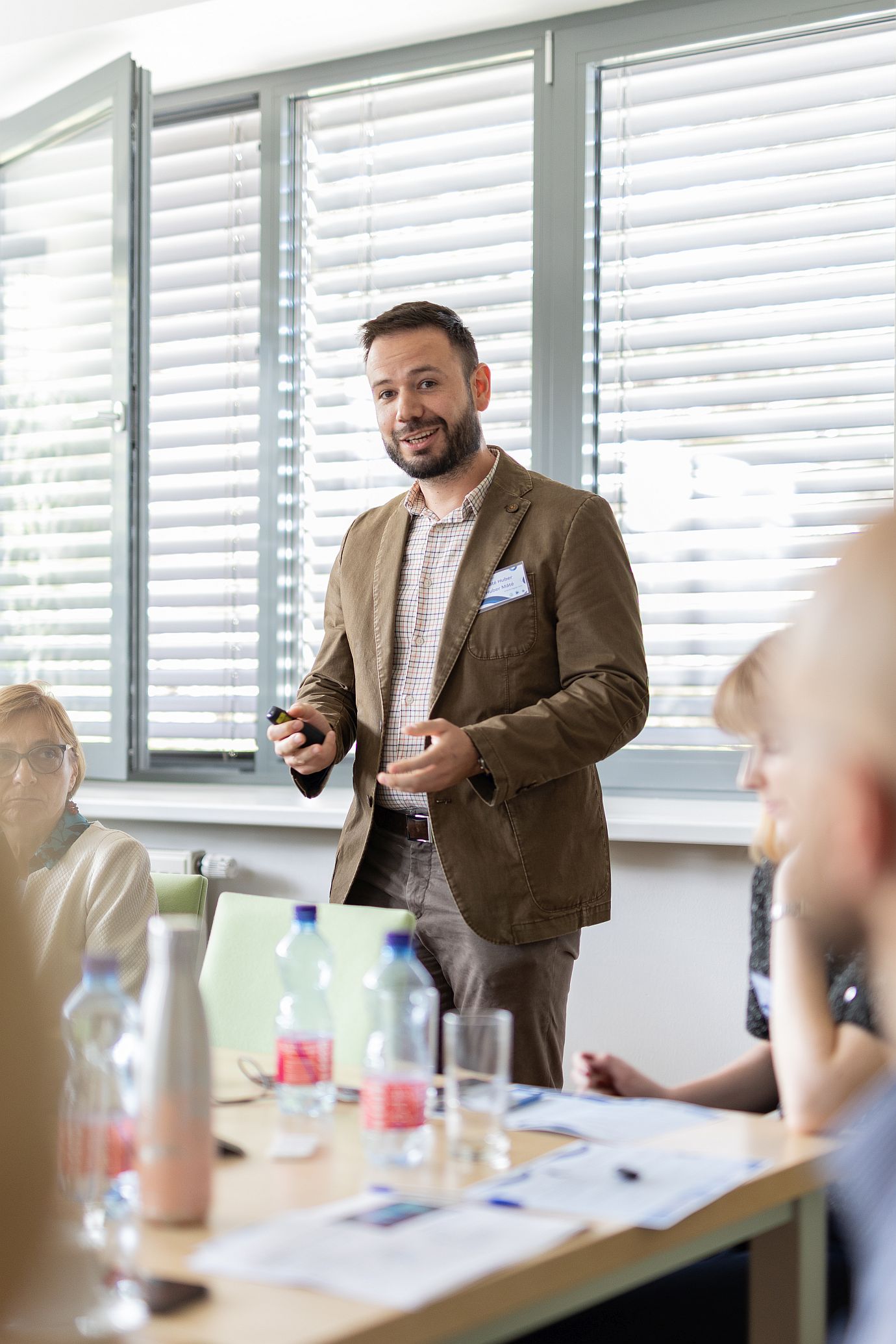

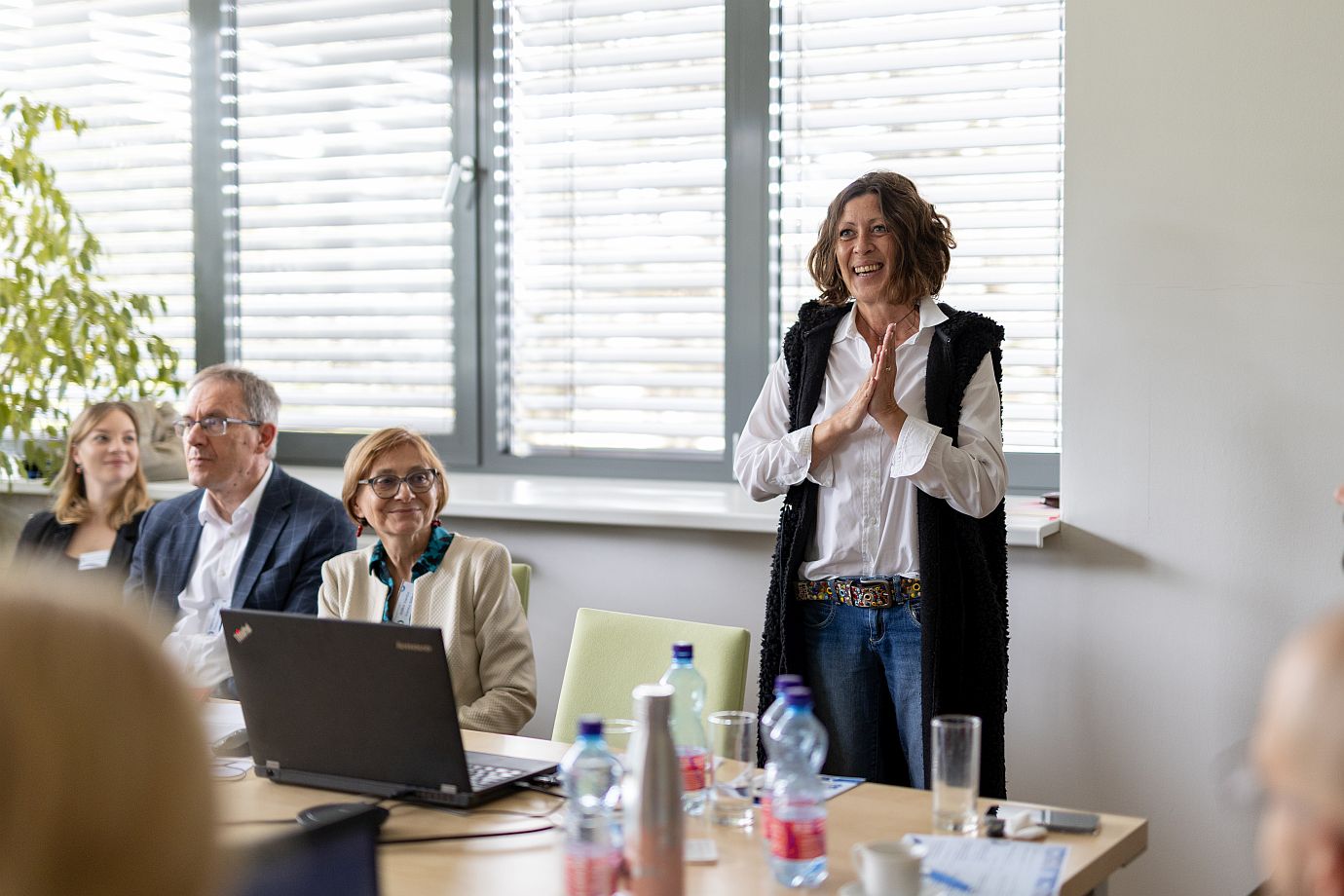
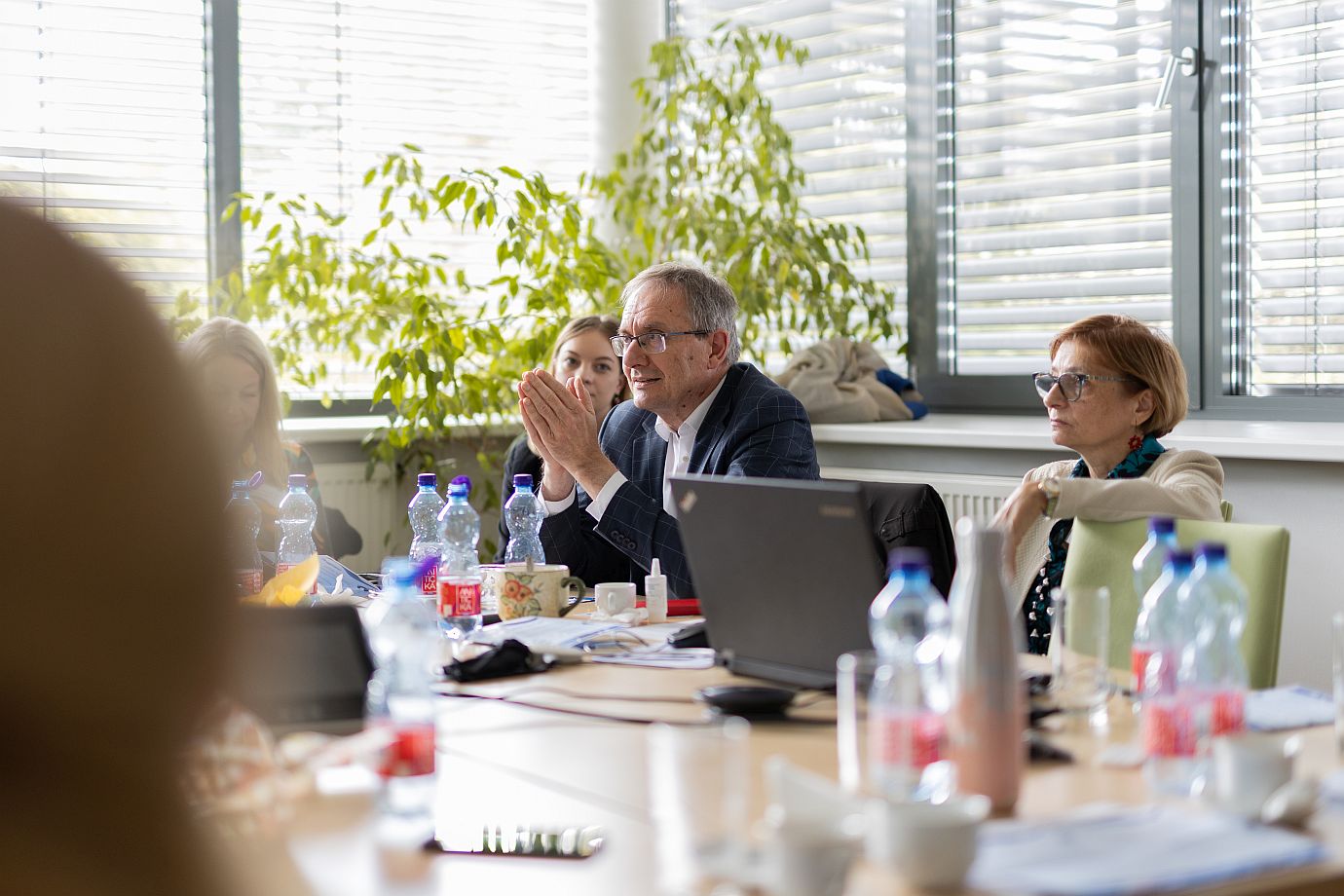
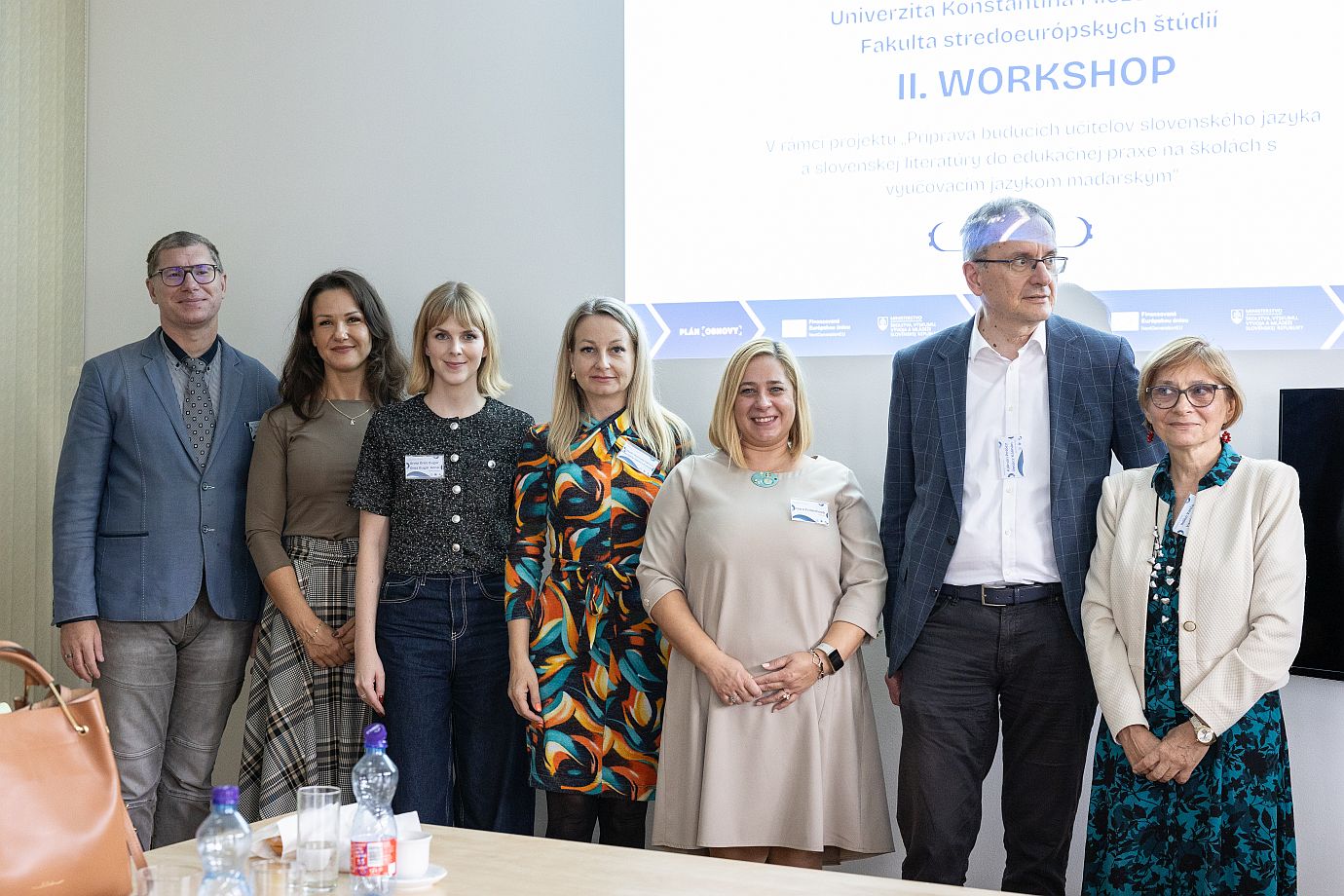
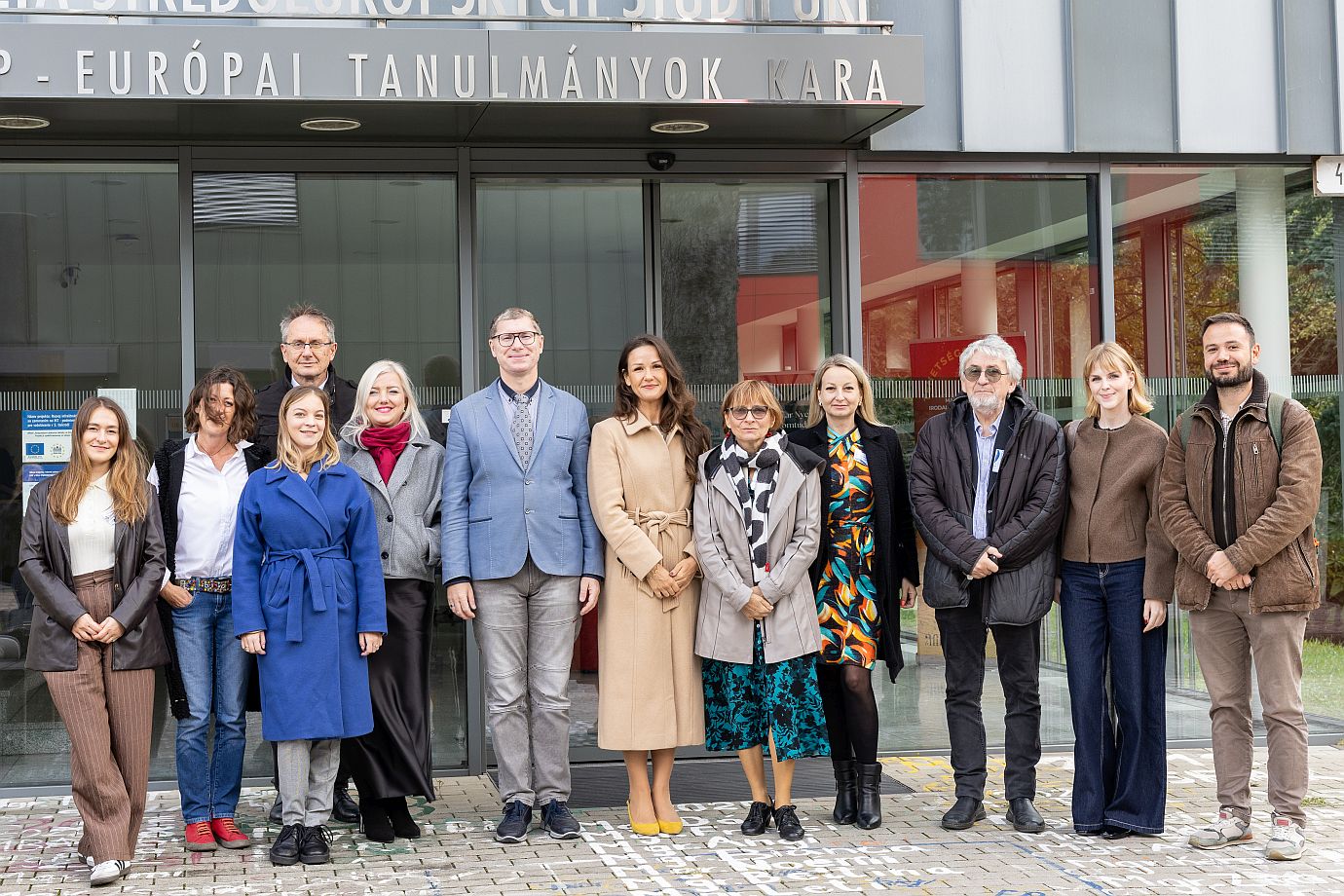
Text: Mgr. Michal Krauter, PhD. – ICELC FCES CPU in Nitra
Photos: Dóra Török




